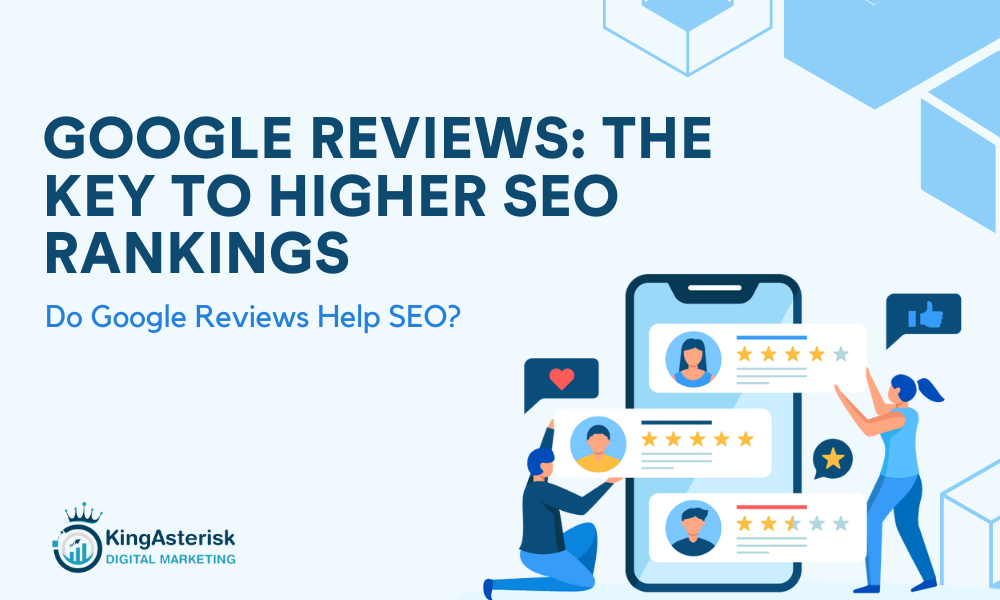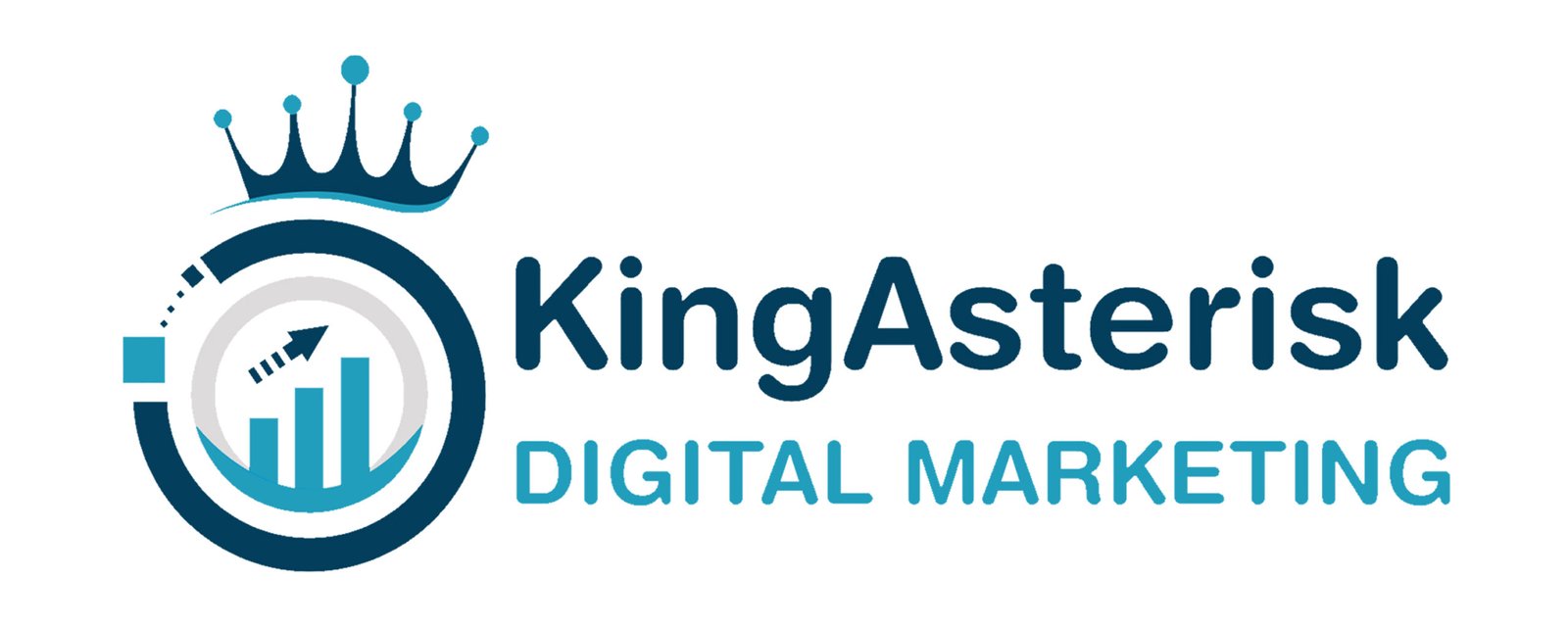
Wondering whether Google reviews help SEO? Google reviews can help or even hinder your SEO, depending on the way you manage them. Find out more in our guide. In a nutshell – yes, Google reviews do help SEO. It lets potential customers know that your products or services are satisfying, builds trust and credibility, and can improve your rankings on search engine results.
While various factors contribute to SEO, Google reviews can significantly influence rankings by demonstrating to search engines that your site is a source of credibility and expertise.
Given the ever-growing competition for small businesses in the digital space, managing online reviews can help distinguish your brand and elevate your presence in search results. SEO isn’t all about finding the right keywords or making sure your site speed is top notch. As a Digital Marketing agency with 12+ years’ experience to our name, we are all too aware of the positive results good review management can bring. Over time, these efforts will establish a credible online presence that potential customers can trust. As I said earlier, the number of reviews you receive can vary based on industries and other factors. So let’s delve deeper into understanding these factors. Which is why we always reiterate to our clients the importance of replying to reviews (both good and bad).
Keen to know more? Then let’s get started.
Stars And SERPs: What Is The Google Star Rating?
A Google star rating is a consumer-powered grading system that lets other consumers know how good a business is based on a score of one to five stars. These star ratings can appear across maps and different Google search results properties like standard blue link search listings, ads, rich results like recipe cards, local pack results, third-party review sites, and on-app store results.
How Do Google Reviews Help SEO?
Google reviews have never played such an important role as they do today. According to a 2022 survey, Google hosts 73% of all online reviews for businesses while 63.6% of consumers say they are likely to check out Google reviews (through Search and Google Maps) prior to visiting a business location — more than any other review site.
These statistics should serve as a stark reminder to marketers about the importance of optimizing their Google Business Profile (formally known as Google My Business), particularly in terms of managing reviews. When a person searches Google, they will see star ratings in the results. Google uses an algorithm and an average to determine how many stars are displayed on different review properties.
While it’s common knowledge that reviews significantly contribute to building a strong brand reputation, the connection between SEO and reviews may be less clear. Google explains that the star score system operates based on an average of all review ratings for that business that have been published on Google.
It’s important to note that this average is not calculated in real-time and can take up to two weeks to update after a new review is created. When users leave a review, they are asked to rate a business based on specific aspects of their customer experience, as well as the type of business being reviewed and the services they’ve included.
Providing Social Proof And Building Trust
Reviews provide social proof – a reassurance from previous customers to prospective ones that your business is trustworthy and credible. While advertising and personal recommendations still play a role in the buyer’s journey, most consumers now typically turn to search engines and online reviews when making purchase decisions. They do this for two reasons.
First, Google makes it ridiculously easy to locate businesses in your area. And second, and probably most important, online reviews help you make more informed purchase decisions than the opinion of one or two friends would.
Since Google’s Map Pack and Google reviews go together, businesses often wonder how much influence your reviews have on where you rank and your SEO efforts. The simple answer is a lot. According to a recent study, online reviews are now the fifth most important factor in where a business ranks online. But the important thing to look at is where online reviews are trending.
The influence online reviews carry in local search ranking increased by more than 20% year-over-year.
Consumers trust online reviews as much as personal recommendations and businesses with a high number of positive reviews are seen as more reliable and authentic, thus boosting your E-E-A-T credentials considerably (E-E-A-T stands for Experience, Expertise, Authoritativeness and Trust and helps Google to determine the quality and reliability of your content).
Building Reputable Backlinks
Integrating Google reviews with external review sites can enhance a business’s SEO performance by generating valuable backlinks to its website. Google’s primary goal is to serve up the most relevant content or the most relevant business based on the consumers’ search terms. Backlinks from reputable, high authority websites play a key role in ranking algorithms – the higher the authority of the site providing backlinks, the better your chances of scaling the SERPs. To ensure that your business is served up during relevant searches, you will want to make sure all your listings are up-to-date and the information and descriptions include all the keywords that are trending in your industry.
Encouraging User-Generated Content
Google is a huge fan of fresh and relevant content, and user-generated content like reviews provide a great branding opportunity to tick that box. But it’s not just about getting noticed and staying top of mind, online reviews are where consumers go to learn about new products and businesses. As consumers typically focus on recent reviews, it’s essential to maintain a consistent flow of fresh feedback to boost your review velocity. If you’re actively getting regular reviews on your Google Business Profile, this indicates to Google that you’re a legitimate business – once again aiding your E-E-A-T cred.
As a side note, it’s worth pointing out that too many 5 star reviews posted at the same time could hint at spammy or fake content – which could potentially put you in Google’s bad books and harm your rankings.
Increasing CTR (Click Through Rate)
A direct result of driving more traffic to your website is that you will have higher click-through rates. Google reviews, particularly positive ones, can significantly boost a site’s CTR. According to a study by BrightLocal, a 5 star rating gains a business 25% more clicks from Google Local Pack than a 3 star rating, and 39% more clicks than a 1 star review. This can reduce your cost per conversion and further indicate to Google that you are a popular, reputable website. Moreover, 56% of consumers select a business if it has positive ratings/reviews displayed in Google Local Pack.
Improving Keyword Rankings
Reviews which feature text (rather than just a star rating) can help improve your keyword rankings. When customers mention specific products or services in their reviews, those terms could help your business rank higher in search results.
Let’s look at an example. Imagine you’re a website owner of a local gym and the reviews on your Business Profile (particularly the good ones) mention the following:
‘I love this gym – great range of weights, exercise bikes and weight-training equipment!’
‘This gym has a lot of great exercise classes – yoga, Pilates, HIIT and more!’
‘The personal trainer at the gym really helped me with my fitness goals – she came up with a great workout plan to help me lose weight’
All of the above reviews feature semantically related keywords (weights, personal trainer, workout plan, etc) which will help boost your gym’s visibility when people search for the terms.
How Many 5-star Reviews Do I Need?
The number of 5-star reviews needed on Google hinges on factors like your business category and location. In highly competitive industries or densely populated areas, achieving a higher count of 5-star reviews is crucial for better search result rankings and attracting more customers. Evaluating your competition helps gauge the required quantity.
Assess the competition to understand the 5-star review benchmarks. If rivals boast numerous 5-star reviews—possibly in the hundreds or thousands—aiming for a similar count becomes necessary to stay competitive.
Quality matters alongside quantity; authentic 5-star reviews from genuinely satisfied customers hold significant value for your business’s reputation and credibility.
How Do Positive Google Reviews Help SEO?
Google has the ability to detect the sentiment or tone of reviews left by customers, so if your reviews contain words such as ‘amazing’, ‘delighted’ or ‘really pleased’, it indicates to Google that the reviewer had a positive experience. As we all know, Google loves a happy end user and considers customer sentiment when determining search rankings, rewarding businesses with higher rankings in the local pack if they have great reviews.
Do Bad Google Reviews Have A Negative Impact On SEO?
Whether or not bad Google reviews have a negative effect on SEO depends on various factors. Generally, negative reviews may harm a business’s reputation, leading to a decrease in customer trust and a drop in sales. In terms of SEO, bad reviews may impact a business’s visibility on the SERPs, as they could signal a lack of credibility and authority.
However, if negative reviews are managed properly, they may actually have a positive effect on SEO by demonstrating a business’s willingness to engage with customers and resolve issues. This helps to rebuild confidence with the reviewer in question and shows others that there is a brand who wants to provide the best service to its customers.
If a social media marketing for business fails to manage negative reviews and more negative reviews are added which are also not responded to, the business could see a decline in online reputation and search rankings. Therefore, it’s crucial for businesses to actively engage with negative feedback and take necessary steps to address customer concerns to avoid potential negative impacts on SEO.
Do More Google Reviews Help SEO?
It goes without saying that having lots of reviews is better for your business than just a few. When a website has a large number of reviews, it indicates to search engines that the website is a trusted and authoritative source of information in its niche (unless they are all 1 star reviews of course!) which helps your E-E-A-T score no end. Additionally, having a large volume of reviews with relevant keywords and phrases can help to improve a website’s visibility in the SERPs for those particular terms.
A word of warning though – sometimes too many positive reviews isn’t always a good thing. In fact, a study by Reviewinc found that more people will trust a 4.7 rating than a perfect 5 star rating, suggesting the latter could be deemed untrustworthy. So the presence of a few negative or mediocre reviews (provided they have been addressed appropriately) can actually be considered beneficial.
Do Reviews Help Local SEO?
Positive reviews can improve a business’s ranking on Google and other search engines, with the top businesses in the Local Pack typically having a large number of positive, recent reviews to draw upon.
Additionally, reviews also offer valuable insights into the business’s products, services and overall customer engagement, helping potential customers make informed decisions about whether a business is worth choosing. Straight away, the searcher can see the top three results all have a number of favorable reviews, indicating a high level of trustworthiness and experience. Dig a little deeper and the reviews consistently feature related terms such as ‘boiler installation’, ‘central heating pipes’ and ‘emergency plumbing’, thus boosting visibility for those terms.
The top result also demonstrates active engagement with customer reviews. It indicates strong levels of customer service and has subsequently been rewarded with top spot in the local pack, highlighting the power of local SEO.
Conclusion
But how many Google reviews is considered good? How many reviews is enough to engage customers, improve rankings, and increase sales?
The obvious answer is as many as possible.
Still, there are other factors that need considering, such as positive and negative reviews, review legitimacy, review frequency, and star rating. To start, when you respond to a review, it counts as new content. Google prioritizes websites that have new content, especially from reputable sources (like Google). It also boosts online presence, engagement, which is a key ranking factor.
While reviews alone can’t make or break a site, they do provide important signals to Google about a business’s experience, expertise, authority and trustworthiness, helping businesses to rank for relevant keywords and build valuable backlinks from authoritative domains. This is why the team at KingAsterisk Digital Marketing is always keen to promote to our clients the benefits of actively engaging with all their reviews.


